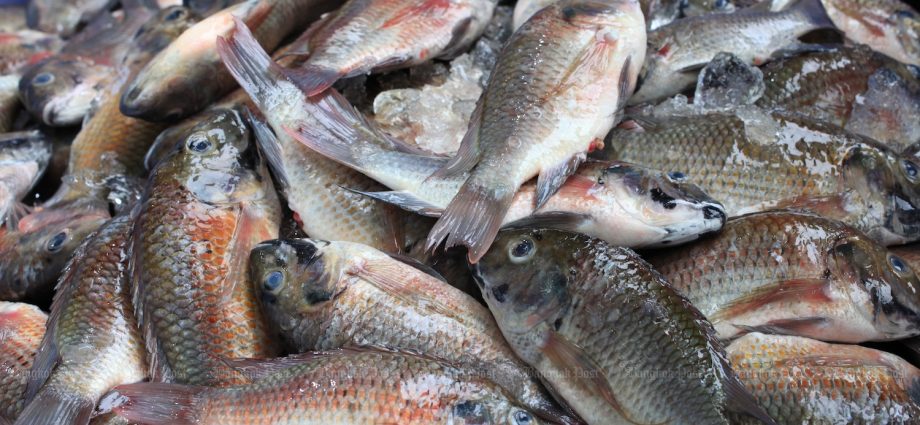Company says it is working with authorities to solve solve problems created by invasive fish

Charoen Pokphand Foods Plc (CP Foods) says it has identified “misleading” images and messages about blackchin tilapia circulating in public forums, causing misunderstandings and damaging the company’s reputation.
“These false claims have been widely shared, resulting in significant damage to the company,” Kobboon Srichai, head of corporate affairs at CP Foods, said in a statement released on Tuesday.
She was responding to material posted online by the BioThai Foundation and claims it made at a recent seminar about how the invasive fish had come to spread to many provinces in Thailand.
CPF has been at the centre of a controversy over whether it played a role in the spread of blackchin tilapia. It has acknowledged that it imported the fish from Ghana for research in December 2010, with permission from the Department of Fisheries. But it scrapped the project a month later after they grew weak and died.
All of the fish were subsequently disposed of using approved methods, with samples and documentation sent to the department, CPF has said. The department has maintained that it did not receive the material in question.
The fish, which prey on many local species, have since been spotted in the waters of at least 16 provinces. DNA tests by the department indicate they come from the same parent stock, but whether the parent stock is related to the fish originally imported by CPF is not clear.
Ms Kobboon of CPF, meanwhile, said that one image circulated by BioThai falsely claims to depict the condition of a fish pond used for breeding blackchin tilapia from 2011-14 at the company’s breeding centre in tambon Yisan of Amphawa district in Samut Songkhram province.
“Another image falsely claims to show the selection of blackchin tilapia eggs for breeding at the Yisan farm,” she said. “In fact, the location depicted is not the Yisan farm, and the activities shown do not align with the company’s practices.”
CP Foods said it was actively working on five cooperative projects to support problem-solving, including collaboration with the Department of Fisheries to catch fish and release sea bass fry, where a significant decrease in fish populations has been noted in some areas.
Recently, CP Foods joined an activity with the Samut Songkhram provincial fisheries office and has been approached by several universities to collaborate on research for food product development and long-term fish population control.
Ms Kobboon emphasised that CP Foods is committed to cooperating with relevant agencies “to establish the truth based on factual evidence”.
“The company will also protect its reputation against the use of false information and images intended to mislead the public,” she said, adding that legal action is being considered.

